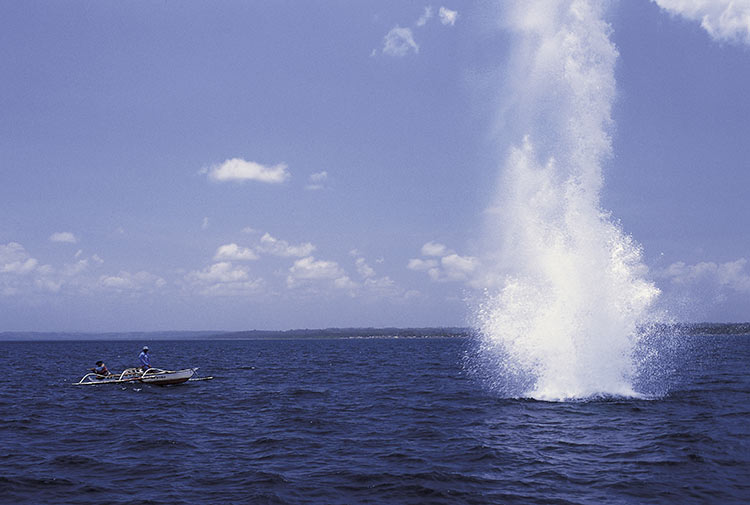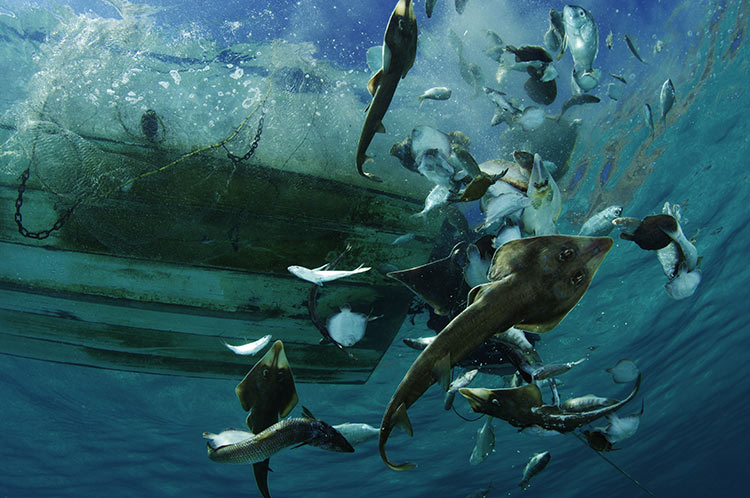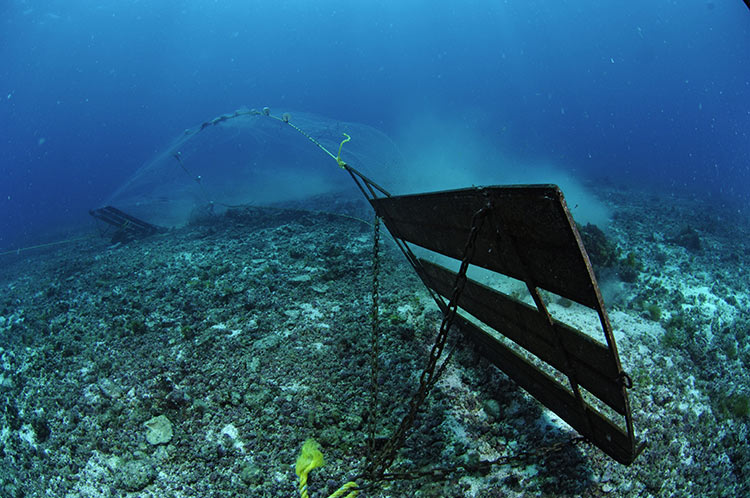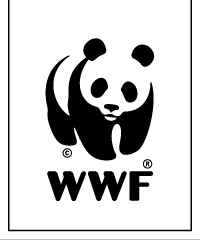Illegal fishing
The term illegal fishing (illegal, unreported and unregulated / IUU) refers to the violation of legislation. Illegal fishing destroys habitats and depletes fish stocks while having a negative impact on law-abiding fisheries. Illegal fishing practices include violations regarding the species, size and quantity of the catch, the time and place of the fishing activity and the size and type of fishing gear, as well as fishing within protected habitats, using explosives and chemicals, harpoon fishing with scuba or lighting equipment or during the night, amateur net fishing, etc.

© J¸rgen Freund / WWF-Canon
Overfishing
Overfishing refers to cases of fish stocks that have been fished and reduced to such an extent that they can no longer breed and maintain their population within adequate levels. It has a grave impact on both marine ecosystems and fishing communities, leading to the collapse of the former and possibly the collapse of the fishing profession.
Ghost fishing
Ghost fishing refers to lost or abandoned fishing gear (e.g., static nets and traps) that continues to capture marine organisms for at least 6 months.
Bycatch
Bycatch is non-selective fishing that results in non-target species being captured and subsequently discarded. Bycatch may comprise non-commercial fish and other species, such as marine mammals, sea turtles, sharks, seabirds, etc. The bycatch phenomenon is a result of non-selective fishing methods and gear, and discard rates vary depending on the type of fishery. Bycatch and discards are considered both environmentally and morally unacceptable.

© Brian J. Skerry / National Geographic Stock / WWF
Impact
Unsustainable fishing has significant impact on marine life (fauna and flora) as well as humans—professional fishers and the local communities that they support.
Impact on the food web
As large fish at the top of the food web become rarer due to overfishing, we fish our way to the bottom, catching smaller and smaller fish. This phenomenon is indicative of the disruption of both the food web and the biodiversity of marine ecosystems.
Habitat and benthos destruction
Dragged fishing gear, such as bottom trawlers and seine netters, can have a destructive impact on important seabed ecosystems, such as Posidonia fields (marine plants that provide breeding grounds and shelter to many organisms and contribute to the production of oxygen), and the benthos (i.e., the organisms which live on and in the seabed).
Moreover, bottom trawlers and the static nets of coastal fisheries have catastrophic consequences when used on the protected red coralline algae (in Greek), which is an important habitat for many fish species.

© Brian J. Skerry / National Geographic Stock / WWF
Interaction with marine mammals
Marine mammals (dolphins and seals) interact with marine fisheries as they compete for the same resource—fish. For fishers, said interaction results in loss of income due to the damage that the mammals cause to their gear and catches. For mammals, it involves the depletion of food due to overfishing, entrapment in fishing gear and deliberate killing by fishers. Read more on mitigating the negative effects of the interaction.
Share this



